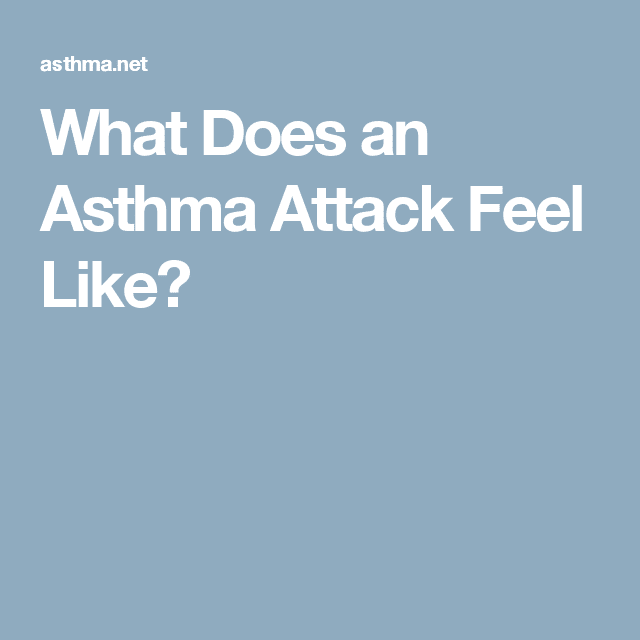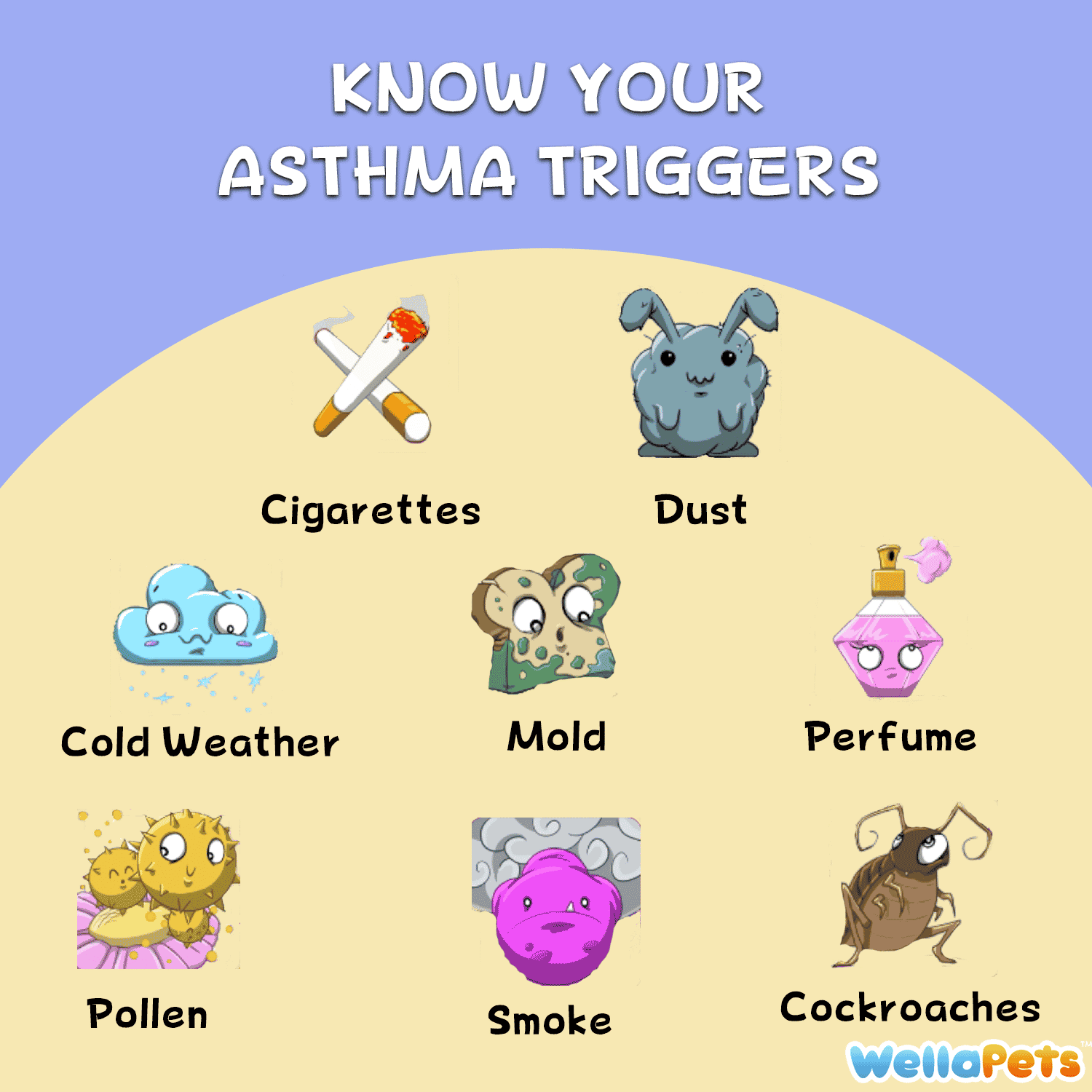Can Asthma Reappear In Adults After Disappearing Years Ago
Asthma is usually diagnosed in childhood. In many patients however, the symptoms will disappear or are significantly reduced after puberty. After age 20, symptoms may begin to reappear.
Researchers have tracked this tendency for reappearing asthma and found that people with childhood asthma tend to experience reappearing symptoms through their 30s and 40s at various levels of severity.
Regardless of whether your asthma is active, you should continue to avoid your known triggers and keep your rescue medications or prescriptions up-to-date and handy in case you need them.
What To Do After An Asthma Attack
An asthma attack can be a learning experience if you and your doctor use it to refine your asthma action plan. Get some tips on what to do after an asthma attack.
An asthma attack is a sudden worsening of asthma symptoms that causes your air passages to become smaller and makes your breathing more difficult. Symptoms of an asthma attack may include difficult and painful breathing, coughing, and . Anyone with asthma needs to have a plan for what to do during an asthma attack. But you should also know what to do after an asthma attack.
You cant always avoid an asthma attack, but you can check in with your doctor and use an asthma attack as a way to improve your asthma management, said Jonathan Bernstein, MD, an associate professor in allergy and asthma at the University of Cincinnati Academic Health Center. In some cases, an asthma attack may be an indication that you need to make some changes.
Seeing your doctor after an asthma attack is especially important if you are newly diagnosed. Discussing the attack with your doctor can help you learn more about your asthma and empower you to manage your asthma better in the future, said Sumita Khatri, MD, co-director of the asthma center at the Cleveland Clinic.
What Happens During An Asthma Attack
When you breathe normally, your airways are fully open, which allows air to move freely into and out of your lungs. Asthma changes airways in several different ways. First, they become overly reactive and more sensitive to your asthma triggers. When this occurs, the lining of the bronchial tubes and lungs well become inflamed. Mucus clogs the airways, and at the same time, the muscles around it tighten, causing bronchospasms. Lungs begin to have difficulty, with moving air out particularly difficult. Breathing not only becomes difficult but stressful too because airways have narrowed significantly.
Recommended Reading: Is Asthma Dangerous During Pregnancy
What To Do After An Asthma Attack:
One in six people who receive treatment at the hospital needs emergency treatment again within two weeks. Asthma attacks are not normal and you should not tolerate them.
Take the following key steps to prevent you having another attack in the future:
- Book an urgent appointment with your healthcare provider
- Keep taking your asthma medication as prescribed
- Take the rest of the day to recover after the attack
It is important to know that the majority of severe asthma episodes can be avoided by having good asthma control.
Advice For Friends And Family

It’s important that your friends and family know how to help in an emergency.
It can be useful to make copies of your personal asthma action plan and share it with others who may need to know what to do when you have an attack.
You can photocopy your existing plan, or you could download a blank personal asthma action plan from Asthma UK and fill it in for anyone who might need a copy.
Or you could take a photo of your action plan on your phone, so you can show or send it to others easily.
Page last reviewed: 19 April 2021 Next review due: 19 April 2024
Don’t Miss: How Do People Grow Out Of Asthma
My Chest Feels Tight And Heavy
This one is usually how I feel when my asthma is acting up. For me, an asthma attack feels like I am wearing a really tight corset while trying to breathe through a coffee stirrer straw. I personally don’t wheeze and my chest gets really tight like I am wearing a corset that is four sizes too small. When the airways constrict it leads to the tight feeling.
What Kind Of Physician Treats Adult Onset Asthma
Many older patients are treated for asthma by their internist or family physician however, if your asthma symptoms are not under control within three to six months, or if you have severe persistent asthma, or if you are having asthma episodes that need emergency treatment, it may be time to see an asthma specialist. Allergists/Immunologists or pulmonologists are specialists who treat asthma. Those who have completed training in those specialties are usually called board-certified or board-eligible.
Also Check: What To Do In Asthma Attack
What Are Common Allergens That Can Trigger Allergic Asthma
Allergens can be found all around you. These can be in your indoor and outdoor environments. When you have allergic asthma, inhaling these allergens can set off your symptoms. Its important to know what can trigger your asthma so that you can control your condition.
Possible allergens that can trigger allergic asthma can include:
- Dander: This is skin flakes and its usually from pets. Hair is often grouped with dander as a common allergen.
- Pollen: A powdery substances, pollen comes from plants. The most common types of pollen that trigger allergic asthma are grass and weeds.
- Mold: Typically found in places that hold moisture , mold produces spores that get into the air and can trigger your asthma.
- Dust mites: Very small and shaped like spiders, dust mites live in the soft surfaces of your home . They eat skin flakes that you naturally shed all of the time. Both the mites themselves and their feces are allergens.
- Cockroaches: These pests can be found in many homes and other buildings. Your asthma can be triggered by the feces, saliva and other body parts of the cockroaches.
Some people suffer from seasonal allergies. These are allergies that flare up at a certain time of year. This is often connected to spring because of the blooming of many plants. During this time of year, there is more pollen in the air than other seasons .
I Cough So Much That I Can’t Catch My Breath
Coughing can definitely make you short of breath. Especially when you are trying to cough out any mucus that is in your lungs. It’s hard work having to cough hard enough to clear it all out which can lead to being short of breath. Also, coughing due to that insatiable tickling feeling down in your lungs can lead to shortness of breath as well.
Read Also: Is Asthma A Chronic Health Condition
Recover Your Breath And Restore Control
Asthma affects millions of people, and although there are plenty of treatments to manage common daily symptoms, asthma attacks claim many lives each year. One major issue is the confusion surrounding what qualifies as an emergency, and what to do during an asthma attack: asthma sufferers are used to dealing with some respiratory discomfort, so when symptoms are on the rise, many people ignore the problem. Thats a dangerous decision.
Whether youve experienced a severe asthma attack or not, its important to know how to get the oxygen your body needs, and help you to avoid more serious complications.
You May Like: Small Airways Disease Definition
What Do I Do While I Wait For My Pcr Test Result
You must stay at home until you get your test result unless you have had both COVID vaccinations, and it has been fourteen days since your second jab.
Self-isolating can be difficult, but its important as it will help stop the spread of COVID-19. Support is available, whether its help with everyday tasks like food shopping, or financial support if you cannot work.
You May Like: Is Hot Steam Good For Asthma
Don’t Miss: Is Asthma Acute Or Chronic
Know The Early Symptoms Of Asthma
Early warning signs are changes that happen just before or at the very beginning of an asthma attack. These signs may start before the well-known symptoms of asthma and are the earliest signs that your asthma is worsening.
In general, these signs are not severe enough to stop you from going about your daily activities. But by recognizing these signs, you can stop an asthma attack or prevent one from getting worse. Early warning signs of an asthma attack include:
- Frequent cough, especially at night
- Losing your breath easily or shortness of breath
- Feeling very tired or weak when exercising
If you have these warning signs, adjust your medication, as described in your asthma action plan.
Why Does My Asthma Act Up At Night

Asthma can get worse at night. If you have symptoms at night, it’s called nighttime asthma. This is often a sign of uncontrolled asthma. It probably has to do with natural body rhythms and changes in your body’s hormones. With the right asthma management and treatment, you should be able to sleep through the night.
Don’t Miss: Does Holding Your Breath Help Asthma
How Do I Handle An Asthma Flare
If you feel like a flare-up is about to happen, stay calm. Let people around you know what’s going on. Then remember your asthma action plan. That’s the written plan that tells you what to do next.
Stay calm and focus on what your asthma action plan says. Your doctor probably told you to use your quick-relief medicine, so do that first.
If you can figure out what triggered your symptoms , remove the trigger or yourself from the area. Sometimes that’s all you need to get your asthma under control again.
If a flare-up is more severe, you might need to get help.
Asthma Attack Symptoms Vary
Asthma attacks are the same. They dont all start the same way, and they dont all progress in the exact same way, either.Asthma symptoms can come on very abruptly or acutely, or they can come on very slowly, says Dr. Wechsler. Thats one of the concerning things.
There is such a range, and its so variable, agrees Dr. Joi Lucas, MD, a pediatric pulmonologist in Orlando and author of Your Roadmap to Successful Asthma Treatment: A Parent’s Guide to Preparing for Your Child’s Doctor Visits and Long-Term Care.
Triggers for asthma attacks vary from person to person, too, although there are a number of common triggers. The Centers for Disease Control and Prevention lists these common culprits:
- Cockroaches, mice and other pests
Related: Watch Out! Fall Activities Can Trigger Allergy and Asthma AttacksHere’s How to Be Prepared
You May Like: Is Asthma A Chronic Obstructive Pulmonary Disease
What To Do When Having An Asthma Attack
If you have asthma, then its important that you know what to do and not do if you have an asthma attack.
Its hard to predict exactly when an asthma attack will occur, so its also important to discuss your condition with your family, friends and employer. Its essential that they all become better acquainted with what happens and how to react and help if you have an asthma attack.
How Can I Prevent And Treat Asthma Symptoms
There is no cure for asthma, but it can be managed. There are two steps to controlling asthma: taking medicines and avoiding or limiting asthma triggers.
To prevent asthma symptoms:
- Avoid or limit contact with your asthma triggers andallergens. Use AAFAs Healthier Home Checklist to identify asthma triggers and allergens in your home and make your indoor environment healthier.
- Get vaccinated. Respiratory infections like colds and the flu can worsen asthma. Get a flu vaccine every year. Keep your lungs healthy by getting other vaccinations as recommended.
- Create an Asthma Action Plan with your doctor. Follow it when you have symptoms. If you are having trouble staying in the Green/Go Zone, your asthma may not be well-controlled. Talk with your doctor about your treatment plan.
- Take your asthma medicines as directed. If your doctor prescribed a medicine to control your asthma, take it as directed. This may be as needed or every day. Follow your Asthma Action Plan.
- Take care of your general health. It can be hard to take care of your health but doing so can help you better manage asthma. Try to get plenty of sleep and exercise. Eat healthy foods as much as possible, stay hydrated, and find ways to manage stress.
To treat sudden asthma symptoms:
Asthma Medicines: Control and Quick-Relief or a Combination
Don’t Miss: Do You Grow Out Of Asthma
What Are The Types Of Asthma
Its easy to think of asthma as one disease, but its actually an umbrella term for many different types, including:
The most common type of asthma, allergy-induced asthma is triggered by exposure to allergens like dust mites, pet dander, pollen, or mold, according to the American Academy of Allergy, Asthma & Immunology. Allergies and asthma tend to run together so youll find people with allergies who also have asthma, says Sonali Bose, MD, Associate Professor of Medicine and Pediatrics at the Icahn School of Medicine at Mount Sinai. For those people with allergic asthma, their allergies are oftentimes the trigger for their disease.
Its pretty normal to become winded during a workout, but if you cough, wheeze, and struggle to breathe within minutes of doing aerobic exercise like running you may have exercise-induced bronchoconstriction, which is more commonly known as exercise-induced asthma.
Triggered by irritants like smoke and medical conditions such as sinusitis, this type of asthma often comes on later in life than allergic asthma. Up to one in three people with asthma have non-allergic asthma2.
Even though pediatric asthma is the most common serious chronic disease in infants and children, according to the American Lung Association, it can be hard to diagnose.
That can make it confusing when it comes to diagnosis.
Am I Having An Asthma Attack
Last reviewed: Medically reviewed
All of Healthilys articles undergo medical safety checks to verify that the information is medically safe. View more details in our safety page, or read our editorial policy.
An asthma attack has been described as feeling like a huge weight is on your chest, with that weight being so heavy that you struggle to draw breath.
The attack happens when the symptoms of asthma a condition that inflames the airways to the lungs get worse, leading to problems breathing.
Asthma is common, affecting more than 339 million people globally, according to the World Health Organization, and around half of those may experience at least 1 attack in a year. In the UK, an asthma attack occurs every 10 seconds.
Though attacks may be quite common among people with asthma, knowing how to recognise the signs of an attack and understanding why they happen can help you to manage them better and even prevent one.
Read Also: Can Post Nasal Drip Cause Asthma Symptoms
What To Do If You Think Youre Having An Asthma Attack
If you suspect youre having an attack, follow these steps:
Its safe to use an albuterol rescue inhaler even if the expiration date has passed. However, the medication inside may not be as effective, so you may need to use more of it to find relief. Dont use an inhaler thats been damaged or stored in direct sunlight.
If you dont have a rescue inhaler, call 911 immediately. In the meantime, try to remain calm and move away from nearby respiratory irritants, like cigarette smoke, pets, or outdoor pollen.
Even if you manage to get an asthma attack under control on your own, you should still visit your family doctor within the next few days. Your doctor can determine if you require additional medications, clinical testing, or if theres an underlying condition that led to the attack.
Its Easy To Get The Care You Need

See a Premier Physician Network provider near you.
It might feel like taking deep breaths of very cold air on a winter day. Your breathing becomes harder and may hurt. You may cough and wheeze. Is this an asthma attack?
If you have asthma, you already know that it makes the airways of your lungs swell and narrow. The wheezing that sometimes you can hear, sometimes only a physician can hear, is when air is trying to squeeze through those little airways, explains Anessa Alappatt, MD, Fairborn Medical Center. While no one knows for sure what causes asthma, its most likely a combination of inherited and environmental factors.
Recommended Reading: Where Does Asthma Occur In The Lungs
